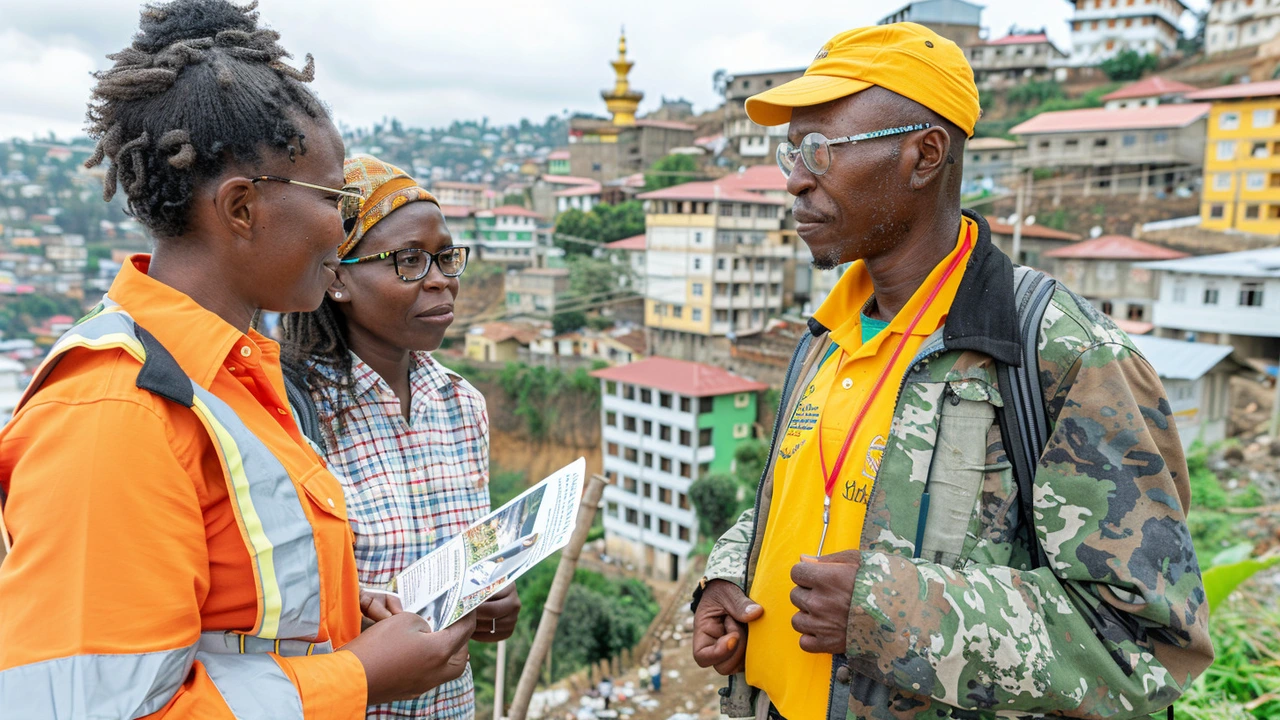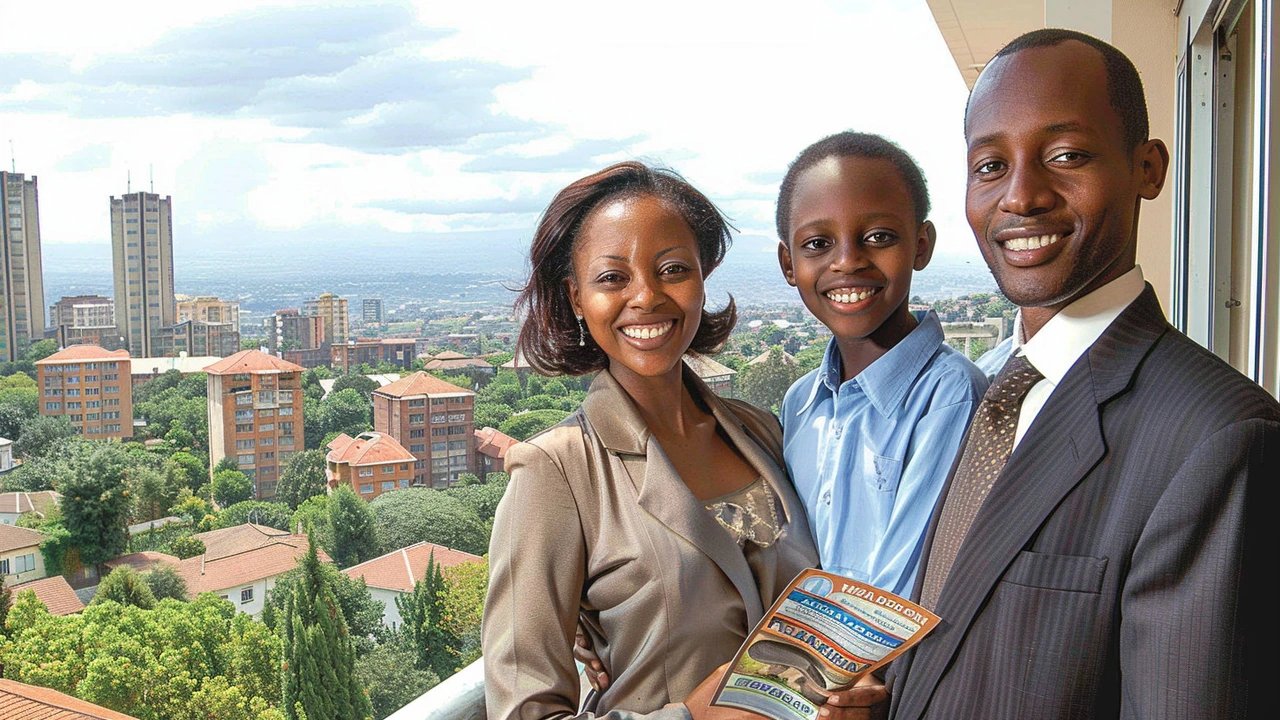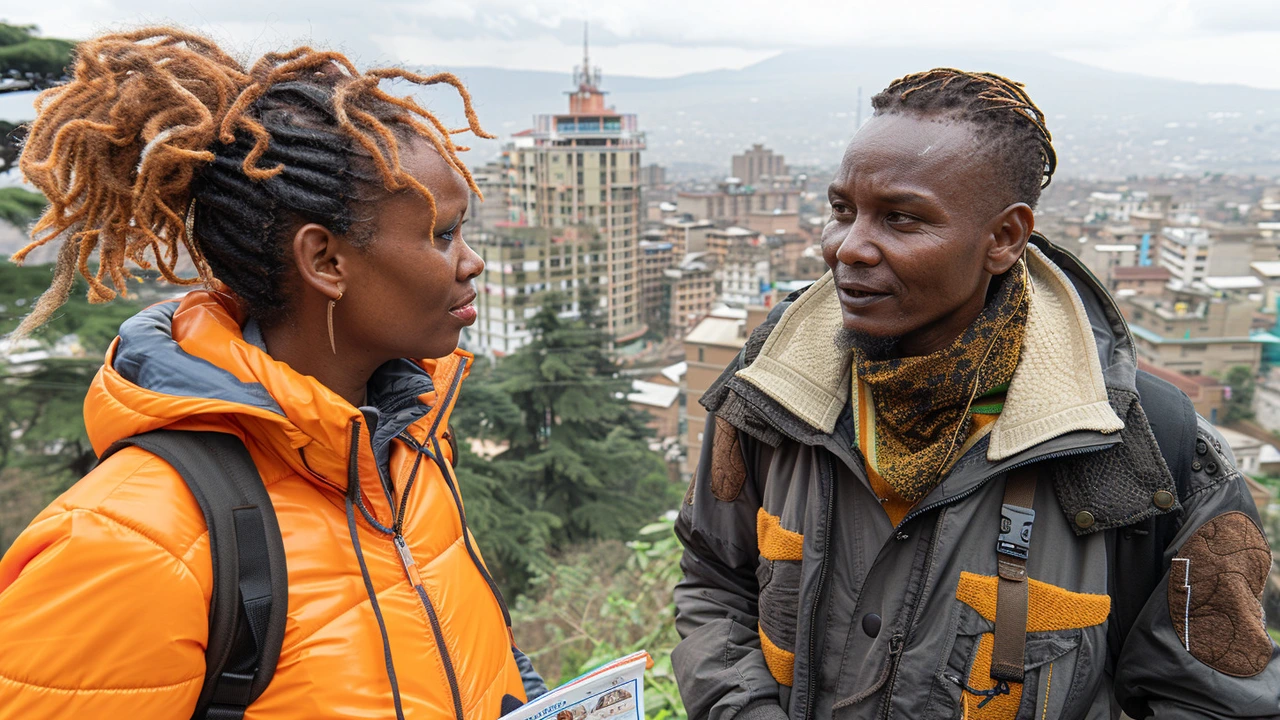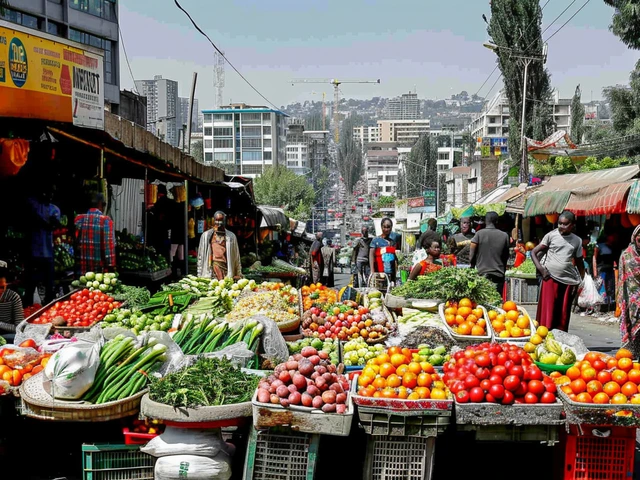When considering a move to Ethiopia or simply finding new housing within the country, understanding the cost of a decent apartment is essential. Whether you are looking at bustling Addis Ababa or exploring other cities, knowing what to expect can make a world of difference in planning and budgeting.
Addis Ababa, the capital city, stands out with its vibrant atmosphere and wide array of housing options. Here, prices can vary significantly based on location, size, and access to amenities. Exploring beyond the capital, cities like Bahir Dar, Gondar, and Hawassa offer more affordable alternatives, each with their unique charm.
Several factors influence apartment costs in Ethiopia. Proximity to business hubs, transport links, and local facilities can drive prices up, while neighborhoods slightly removed from the city center or situated in upcoming areas tend to be more cost-effective. For anyone considering long-term stays, buying an apartment might be a wise financial decision, provided the local real estate market nuances are well understood.
Securing a reasonably priced apartment isn't just about location. Being aware of market trends, engaging with local real estate agents, and even negotiating rent can go a long way. Seeking guidance from locals and having a clear idea of what you can compromise on will simplify your search. As with any major decision, being informed and patient will yield the best results.
- Cost of Apartments in Addis Ababa
- Comparing Prices in Other Cities
- Factors Affecting Housing Costs
- Tips for Finding Affordable Apartments
Cost of Apartments in Addis Ababa
When it comes to finding a decent apartment in Addis Ababa, the capital city of Ethiopia, there are various factors that influence rental and purchase prices. The city is known for its vibrant energy, economic opportunities, and diverse neighborhoods, making it a popular destination for expatriates and locals alike. Apartments in Addis Ababa can range from modest one-bedroom units to luxurious multi-bedroom residences, with wide variances in pricing.
In central districts such as Bole, Kazanchis, and Old Airport, you can expect higher rental prices due to the proximity to international businesses, embassies, and amenities. A typical one-bedroom apartment in these areas might cost anywhere from $500 to $1,200 per month, depending on the building's age, facilities offered, and whether the apartment is furnished. For those seeking more space, a three-bedroom apartment in these prime locations can range from $1,500 to $3,000 monthly.
On the other hand, neighborhoods farther from the city's core, like CMC, Gurd Shola, and Lebu, tend to have more affordable options. In these areas, it's possible to find a one-bedroom apartment for about $300 to $600 per month. Larger apartments with two or three bedrooms might range between $800 and $1,500. It's important to note that newer apartment complexes with modern amenities usually fall on the higher end of the price spectrum.
Buying an apartment in Addis Ababa presents another layer of consideration. The purchase price for a brand new one-bedroom unit in a desirable area can start at around $70,000, while larger, well-appointed apartments can go up to $300,000 or more. A significant portion of new apartments are developed by private real estate companies, often offering installment payment plans to make the purchase more manageable. Resale options are also available, at times offering slightly lower prices depending on the age and condition of the property.
When searching for an apartment, it's beneficial to connect with local real estate agencies or trusted online platforms that specialize in Ethiopian properties. Listings can provide insights into the latest market trends and help you gauge fair pricing. Additionally, joining expatriate community forums or local social groups can yield personal testimonials and recommendations, making the search process smoother.
Keep in mind, utilities and service charges are typically not included in rental prices. Monthly costs for electricity, water, and internet can add up, ranging from $50 to $200 depending on usage and service providers. Another expense to consider is property management fees, especially for new and well-maintained complexes, which can add around $50 to $100 monthly. Being aware of these extra costs is essential for budget planning.
Lastly, while Addis Ababa may present higher costs compared to other Ethiopian cities, it offers a unique blend of modern urban living and rich cultural experiences. Whether you're renting or buying, the city's dynamic environment ensures a worthwhile investment for those seeking both comfort and adventure.

Comparing Prices in Other Cities
While Addis Ababa is often in the spotlight when discussing housing in Ethiopia, several other cities offer unique opportunities and competitive prices for those seeking apartments. Exploring these options can uncover a range of costs and living experiences.
First up is Bahir Dar, known for its scenic beauty by Lake Tana. Apartments here are relatively affordable, especially when compared to the bustling capital. For instance, a modest one-bedroom apartment in the city center might cost around $150 to $200 per month. If you venture a bit towards the suburbs, prices can dip to as low as $100 monthly, making it an attractive option for budget-conscious renters.
In Gondar, a city famous for its historical castles, the real estate market is equally appealing. The cost of renting a one-bedroom apartment ranges from $120 to $180 per month in central locations. The serenity and relaxed pace of life here are added bonuses for those looking to escape the hustle of larger cities. Gondar's unique architectural heritage also means some apartments have charming, traditional designs which can be a significant draw for history enthusiasts.
Hawassa, another notable city, offers vibrant living near Lake Hawassa, with added benefits of milder weather. Rental prices for apartments in Hawassa are typically between $130 and $170 per month. The city’s growth as a business and tourism hub means modern amenities are increasingly available, making Hawassa an appealing choice for long-term residencies.
Affordable Cities with Modern Amenities
Dire Dawa, situated in the eastern part of Ethiopia, is another city worth considering. Known for its mix of cultures and historical significance, the city offers apartment rentals ranging from $110 to $160 per month. With ongoing developments, many neighborhoods are incorporating modern facilities which are gradually enhancing the living standards.
Jijiga, the capital of the Somali Region, provides yet another affordable option. Here, you can find comfortable apartments for about $100 to $140 per month. While it may not have the extensive amenities found in bigger cities, Jijiga’s charm lies in its cultural richness and community-oriented lifestyle.
According to a report by the Ethiopian Economics Association, “Housing affordability remains a priority for urban development plans, aiming to balance growth with accessible living costs.”
Each city in Ethiopia brings its own set of advantages and considerations when it comes to apartment costs. From historical allure in Gondar to the lakeside tranquility in Hawassa, there is a fit for every preference and budget. It's also important to note that while rental prices might seem low compared to global standards, other cost-of-living factors, like utilities and transportation, should be factored into your budget.
Ultimately, by exploring beyond Addis Ababa, you can find better deals and potentially more enjoyable living conditions, tailored to your individual needs and lifestyle preferences.

Factors Affecting Housing Costs
Understanding what impacts housing costs in Ethiopia can help you make informed decisions when searching for an apartment. Numerous factors contribute to the price variations, and being aware of them ensures you get the best value for your money.
One of the primary factors is location. Apartments in central areas like Addis Ababa's Bole District or the Kazanchis neighborhood come at a premium due to their proximity to business hubs and amenities. On the other hand, areas on the outskirts of the city or in smaller towns offer more affordable options. Accessibility to public transportation and essential services such as schools and hospitals play a significant role in determining housing costs. According to urban development experts, properties closer to reliable transport and comprehensive facilities tend to command higher rents.
The type and size of accommodation also impact costs. Modern high-rise apartments with luxury features such as swimming pools, gyms, and high security will naturally be more expensive than basic, low-rise buildings. Single-bedroom apartments are cheaper than those with multiple bedrooms or penthouses. Moreover, newly constructed buildings equipped with contemporary amenities attract higher prices compared to older, less modern alternatives.
Another critical factor is the supply and demand dynamics. Ethiopia has seen rapid urbanization in recent years, leading to a surge in housing demand, particularly in major cities. This high demand often leads to increased prices, especially in areas where development is booming. Conversely, during times of economic downturns or reduced demand, prices may stabilize or even decrease slightly.
Local economic conditions and policies also play a crucial role. Inflation rates, property taxes, and government housing policies can all influence rental and purchase costs. For instance, recent housing schemes introduced by the government aim to make homeownership more accessible, potentially impacting market pricing trends. Meanwhile, an unstable economic environment might result in fluctuating housing costs.
Additionally, neighborhood safety is a noteworthy consideration. Areas with low crime rates and strong community engagement are more sought after, which drives up property values. Families and expatriates especially prioritize safety, willing to pay a premium for peace of mind. Moreover, some neighborhoods are culturally significant or provide a lifestyle that includes shopping districts, recreational parks, and café culture, making them more attractive and hence more costly.
Lastly, hiring local real estate agents can provide invaluable insights into the real estate market. Agents can inform potential renters or buyers about areas with the best value and help negotiate prices. According to a local real estate agent, “Knowing the right people and having local market knowledge can make a significant difference in securing an affordable apartment.”
In summary, when looking for a place to live in Ethiopia, it's essential to balance your priorities and consider all these factors to make the best decision suited to your needs and budget.

Tips for Finding Affordable Apartments
Finding affordable apartments in Ethiopia involves some strategy and effort, but it is certainly achievable. First, you must decide on your priorities. Are you willing to compromise on proximity to the city center for a spacious place or prefer a smaller apartment with easy access to amenities? These decisions will shape your search and help you identify the best neighborhoods and buildings to consider.
Starting your search early can make a huge difference. The rental market in cities like Addis Ababa can be competitive, with good apartments quickly snapped up. Keeping an eye on listings and regularly checking property websites will help you stay ahead. Engaging with local real estate agents can also provide access to off-market listings and specialized knowledge about different neighborhoods.
One effective way to find affordable housing is to explore less obvious areas. While central districts like Bole or Kazanchis are attractive for their convenience, they come with higher price tags. Instead, look into upcoming neighborhoods such as Summit or Lebu, where you may find more space for your budget. These areas are often quieter and offer a better quality of life with less congestion.
Networking plays a crucial role in finding good deals. Talk to locals, expatriates, and colleagues who might know of available apartments or landlords looking to rent out places. Joining community groups on social media platforms can also be highly effective. Many tenants post about available apartments in these groups before they hit the open market.
Negotiation skills are key when finalizing a rental agreement. Don't be afraid to negotiate the rent, especially for longer leases. Landlords may be open to reducing the price if it means securing a reliable tenant for an extended period. A good rapport with the landlord can also lead to discovering other perks such as reduced deposits or help with maintenance fees.
Another tip is to consider renting directly from landlords rather than through agencies, which often charge additional fees. Platforms like Jumia House and Ethiopian Property assist in connecting tenants directly with property owners. Being flexible with your move-in date can also yield positive results, as some landlords offer discounts to fill vacancies quickly.
Lastly, pay close attention to the details. Ensure the apartment meets safety standards, has a reliable water supply, and is located in a secure area. Consider the cost of utilities and factor them into your overall budget. An affordable apartment with high utility costs can end up being more expensive in the long run. By following these tips, you can navigate the Ethiopian rental market more efficiently and find a place that suits both your needs and budget.

 5 Booming Careers You Should Consider for a Bright Future
5 Booming Careers You Should Consider for a Bright Future
 How Many Millionaires Live in Ethiopia? Discover the Financial Elite
How Many Millionaires Live in Ethiopia? Discover the Financial Elite
 Why Ethiopia is a Must-Visit Destination: Culture, History, and Natural Beauty
Why Ethiopia is a Must-Visit Destination: Culture, History, and Natural Beauty
 Leading Causes of Death in Ethiopia: A Detailed Overview
Leading Causes of Death in Ethiopia: A Detailed Overview
 Is Ethiopia One of the Poorest Countries in Africa? Exploring Economic Realities
Is Ethiopia One of the Poorest Countries in Africa? Exploring Economic Realities
Abhijit Pimpale
June 21, 2024 AT 17:34Rent for a one‑bedroom unit in central Bole typically starts around $500 per month, while peripheral districts can drop to $300.
Eric DE FONDAUMIERE
June 21, 2024 AT 23:23Hey, dont let those numbers scare you – start scouting listings early and you’ll snag a sweet spot! Trust me, the right place is out there, just keep pushing.
Pauline Herrin
June 22, 2024 AT 05:13The article, while comprehensive, overlooks the impact of recent inflationary pressures on utility costs, which now routinely exceed $150 for a modest apartment. Moreover, the omission of tax considerations for property purchases reduces its practical utility for prospective buyers.
pradeep kumar
June 22, 2024 AT 08:33Neglecting the seasonal variation in water availability is a glaring oversight; renters should verify supply reliability before signing.
love monster
June 22, 2024 AT 11:53Leverage the local MLS aggregators and cross‑reference index metrics such as price‑per‑square‑meter to benchmark listings; this data‑driven approach will streamline your search.
Christian Barthelt
June 22, 2024 AT 15:13Actually, the premium on Bole is overstated – recent market data shows comparable rentals in Kazanchis have undercut Bole by up to 15 % due to new co‑working spaces drawing tenants away.
Ify Okocha
June 22, 2024 AT 18:33This guide inflates the allure of Addis while glossing over the endemic bureaucratic delays that can stall lease agreements for months.
William Anderson
June 22, 2024 AT 21:53One cannot help but be appalled by the article’s naive optimism; it romanticizes urban displacement without acknowledging the underlying socio‑economic fissures that gnaw at the very fabric of Ethiopian metropolises.
Sherri Gassaway
June 23, 2024 AT 01:13The notion of home transcends brick and mortar, becoming a reflection of one's inner equilibrium. In the Ethiopian context, the search for an apartment is interwoven with cultural notions of community and hospitality. When a resident steps into a new dwelling, they negotiate not only rent but also an implicit contract with the surrounding neighborhood. Such negotiations are colored by historical patterns of urban migration, which have reshaped cityscapes in subtle ways. The price differentials between districts reveal deeper socioeconomic stratifications that persist despite rapid development. One must consider the temporal dimension of housing, acknowledging that today's reasonable rent may evolve as infrastructure expands. Furthermore, the invisible cost of social integration, often manifested in language barriers and local customs, influences perceived affordability. It is essential to balance material considerations with the intangible benefits of proximity to cultural landmarks. A well‑chosen apartment can serve as a crucible for personal growth, fostering resilience amidst unfamiliar surroundings. Conversely, a hastily selected lease may erode one's sense of stability, leading to chronic stress. The article's emphasis on numerical ranges, while useful, neglects the qualitative aspects that define daily lived experience. Future expatriates would do well to engage with local mentors, who can illuminate hidden costs and opportunities. Moreover, an awareness of governmental housing schemes can provide pathways toward ownership that the guide barely touches upon. In sum, the pursuit of a decent apartment in Ethiopia is a microcosm of larger existential choices about belonging and identity. Thus, approaching the market with both analytical rigor and philosophical openness yields the most harmonious outcome.
Milo Cado
June 23, 2024 AT 04:33Great advice! 🙌 Staying open‑minded and asking locals for tips really pays off, and you’ll often discover hidden gems that aren’t listed online. 😊
MONA RAMIDI
June 23, 2024 AT 07:53Seriously, if you think dropping $500 a month guarantees comfort, you’re dreaming. The reality is cramped units, noisy streets, and power outages that will test your patience. Step up your expectations or prepare for constant compromise.
grace riehman
June 23, 2024 AT 11:13Hey buddy, dont forget to check the water supply schedule – some places have water only 2‑3 times a week. Also, try hitting up the local coffee spots, they’re a goldmine for apartment leads.
Vinay Upadhyay
June 23, 2024 AT 14:33Oh sure, because finding a cheap flat in the capital is as easy as ordering pizza online – just ignore the endless paperwork and ever‑changing regulations.
Eve Alice Malik
June 23, 2024 AT 17:53I've noticed that many landlords prefer tenants who can pay a few months in advance, so having savings ready can give you a serious edge.
Debbie Billingsley
June 23, 2024 AT 21:13Investing in Ethiopian property not only secures your future but also strengthens our national economy, which deserves our unwavering support.
Patrick Van den Berghe
June 23, 2024 AT 21:46Agreed
Josephine Gardiner
June 23, 2024 AT 22:20In conclusion, a diligent assessment of both quantitative costs and qualitative factors is indispensable for any prospective resident of Ethiopia.